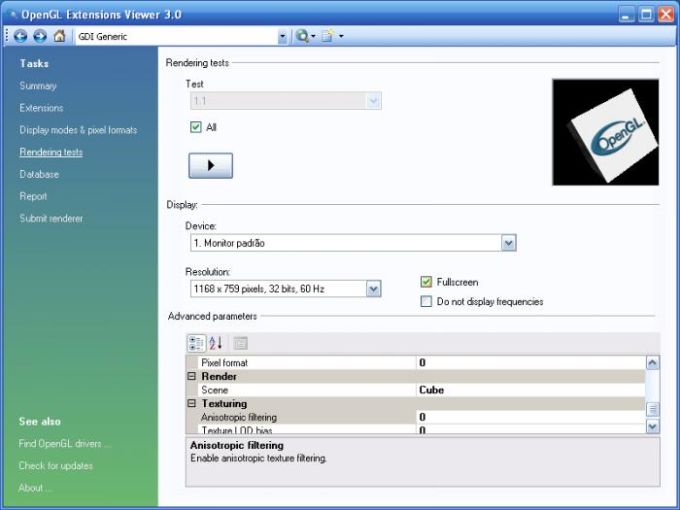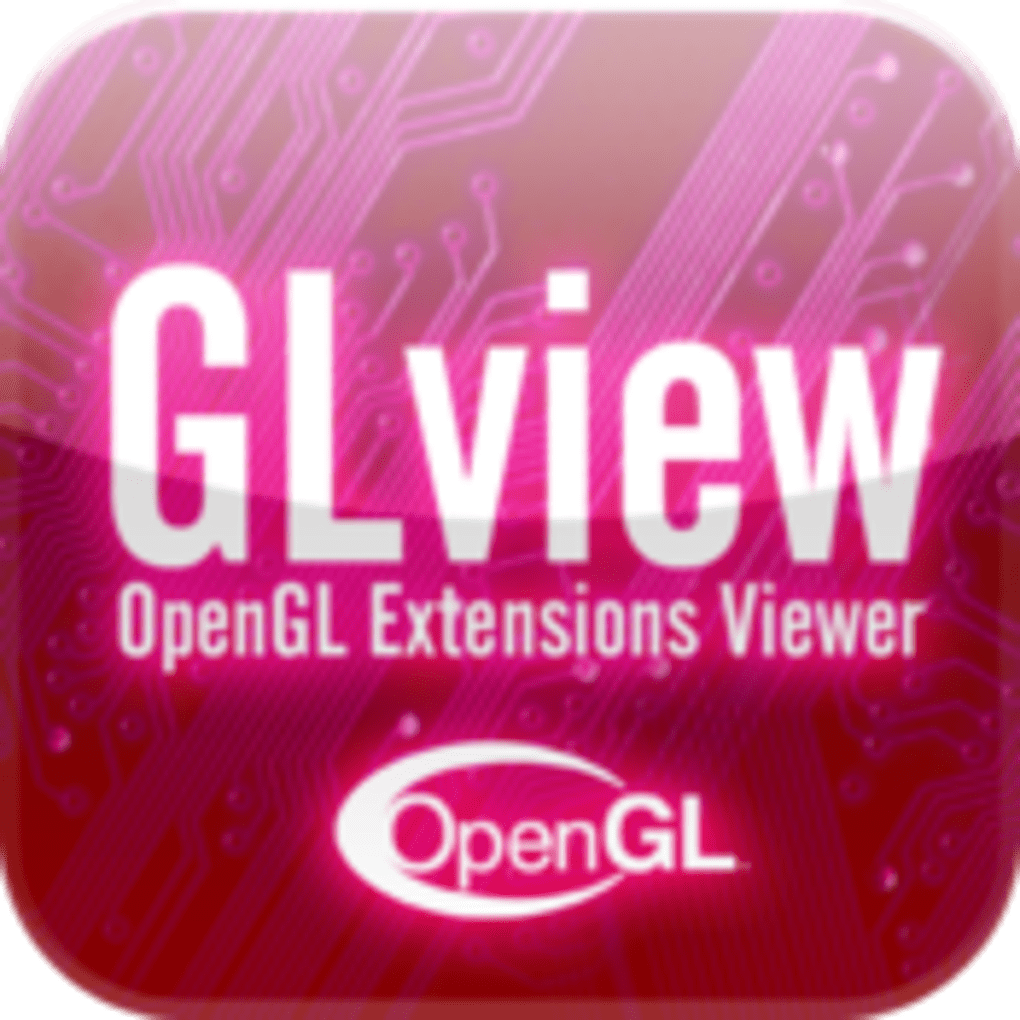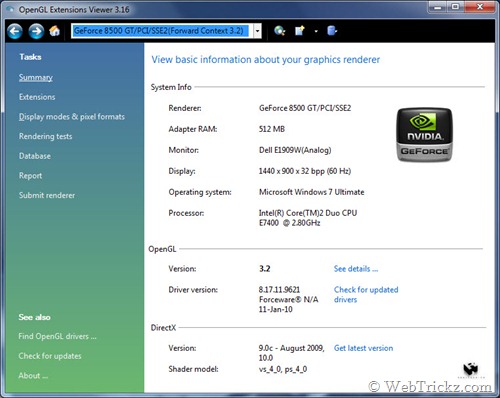
- #Opengl extensions viewer not working drivers#
- #Opengl extensions viewer not working driver#
- #Opengl extensions viewer not working android#
- #Opengl extensions viewer not working code#
- #Opengl extensions viewer not working windows#
Just-in-time (JIT) debugging instead of this dialog box. See the end of this message for details on invoking I get the following exception in running OpenGL Viewer: Host: linux amd64, VirtualBox 3.0.6 with guest additions OpenGL Core is a back-end capable of supporting the latest OpenGL features on Windows, MacOS X and Linux.I setuped OpenGL Extension Viewer v.3.0 to test the opengl 3d acceleration possibilities of my vm.
#Opengl extensions viewer not working driver#
This scales from OpenGL 3.2 to OpenGL 4.5, depending on the OpenGL driver support. To set OpenGL Core as your default Graphics API in the Editor or Standalone Player, go to the Player settings (menu: Edit > Project Settings, then select the Player category), and navigate to Other Settings.
#Opengl extensions viewer not working windows#
Windows with NVIDIA since 2006 (GeForce 8), AMD since 2006 (Radeon HD 2000), Intel since 2012 (HD 4000 / IvyBridge) (OpenGL 3.2 to OpenGL 4.5) OpenGL Core has the following minimum requirements: For more details, see Graphics API support.ĭisable the Auto Graphics API for Windows property, and choose OpenGLCore from the list. The macOS OpenGL backend for the Editor and Standalone supports OpenGL 3.x and 4.x features such as tessellation and geometry shaders A program that runs on the GPU. However, as Apple restricts the OpenGL version on OS X desktop to 4.1 at most, it does not support all DirectX 11 features (such as Unordered Access Views or Compute Shaders). This means that all shaders that are configured to target Shader Level 5.0 (with #pragma target 50) will fail to load on OS X. Therefore a new shader target level is introduced: #pragma target gl4.1.
#Opengl extensions viewer not working android#
The new OpenGL back-end introduces many new features (previously mostly DX11/GLES3 only): This target level requires at least OpenGL 4.1 or DirectX 11.0 Shader Level 5 on desktop, or OpenGL ES 3.1 + Android Extension Pack on mobiles. Compute shaders (as well as ComputeBuffers and “random write” render textures).Indirect draw (Graphics.DrawProcedural and Graphics.DrawProceduralIndirect).When using the existing #pragma targets, they map to following GL levels: #pragma target 4.0 // OpenGL ES 3.1, desktop OpenGL 3.x, DX Shader Model 4.0.

#pragma target gl4.1 // Desktop OpenGL 4.1, SM 4.0 + tessellation to match MacOSX 10.9 capabilities.#pragma target 5.0 // OpenGL ES 3.1 + Android Extension Pack, desktop OpenGL >= 4.2, DX Shader Model 5.0įor including and excluding shader platforms from using a specific shaders, the following #pragma only_renderers / exclude_renderers targets can be used.#Opengl extensions viewer has stopped working android# #pragma only_renderers glcore: Only compile for the desktop GL. If the platform doesn’t support a specific version of OpenGL, Unity will fallback to a supported version -force-glcoreXY: XY can be 32, 33, 40, 41, 42, 43, 44 or 45 each number representing a specific version of OpenGL.With this argument, Unity will detect all the features the platform support to run with the best OpenGL version possible and all available OpenGL extensions -force-glcore: To use the new OpenGL back-end.-force-opengl: To use the legacy OpenGL back-end.It’s possible to start the editor or the player with OpenGL using the command line arguments: OpenGL core profile command line arguments Like the ES 3 target, this also scales up to contain all desktop GL versions, where basic shaders will support GL 2.x while shaders requiring SM5.0 features require OpenGL 4.2+.
#Opengl extensions viewer not working code#
#Opengl extensions viewer not working drivers#
OpenGL ES graphics API is available on Windows machines with Intel or NVIDIA GPUs with drivers supporting OpenGL ES. #Opengl extensions viewer has stopped working drivers# force-glesXY: XY can be 20, 30, 31, 31aep or 3.2 each number representing a specific version of OpenGL ES.With this argument, Unity will detect all the features the platform support to run with the best OpenGL ES version possible and all available OpenGL ES extensions -force-gles: To use the new OpenGL back-end in OpenGL ES mode. If the platform doesn’t support a specific version of OpenGL ES, Unity will fallback to a supported version.




 0 kommentar(er)
0 kommentar(er)
